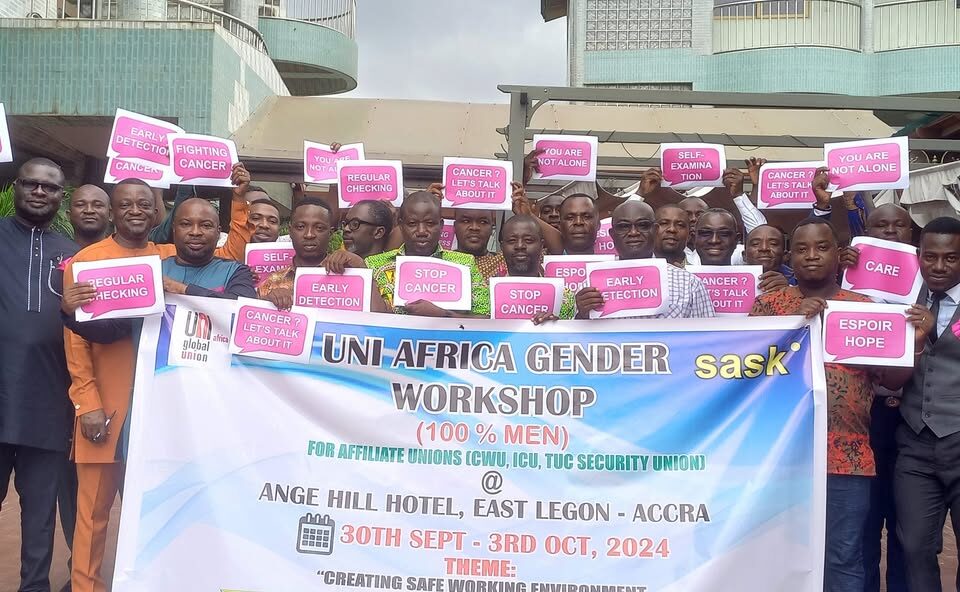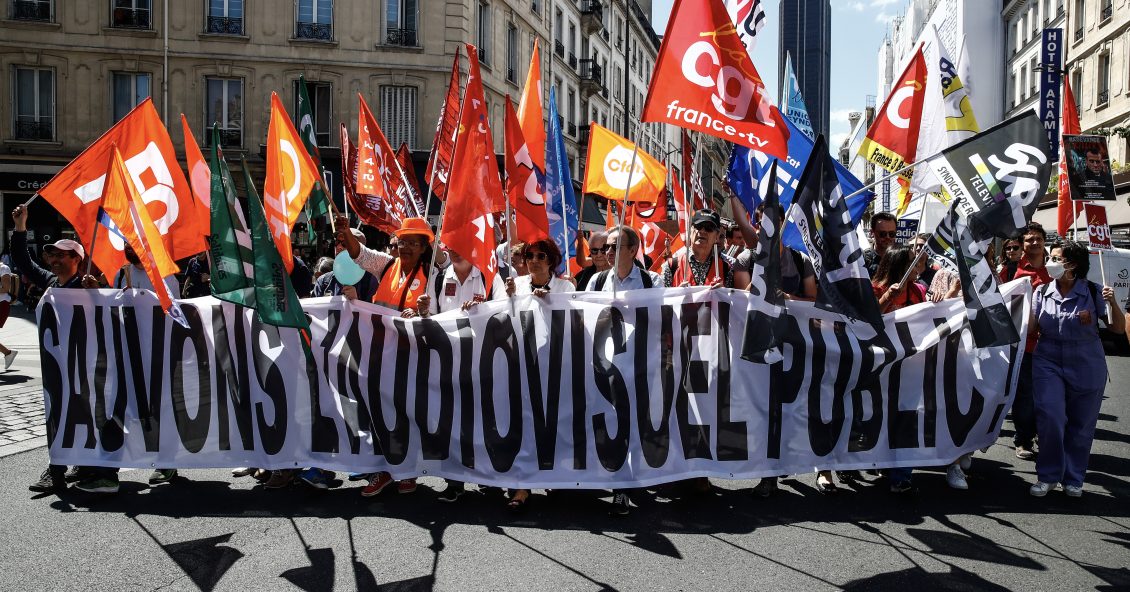UNI Africa runs first all male gender equality workshops
09.12.24
Trade union leaders and shop stewards from UNI Global Union affiliates in Ghana, Kenya and Mozambique took part in UNI Africa’s first ever gender equality workshops entirely for men.
The workshops were held as part of UNI Africa’s project with the Finnish Trade Union Solidarity Centre (SASK), which includes a goal to increase women’s representation and equality in unions in the three countries.
Gender champion and former UNI’s former Women World President, Patricia Nyman from SACCAWU in South Africa, led the well-attended workshops with the male participants.
“We learned from our previous workshops with men and women that it was always the men who spoke the most, even though there were very strong women in the group,” said Nyman. “And the men speaking still had their own bias.”
The workshops focused on breaking gender biases and raising awareness about gender as a societal construct. Participants grappled with ingrained stereotypes about gender roles, such as “women’s jobs” versus “men’s jobs.”
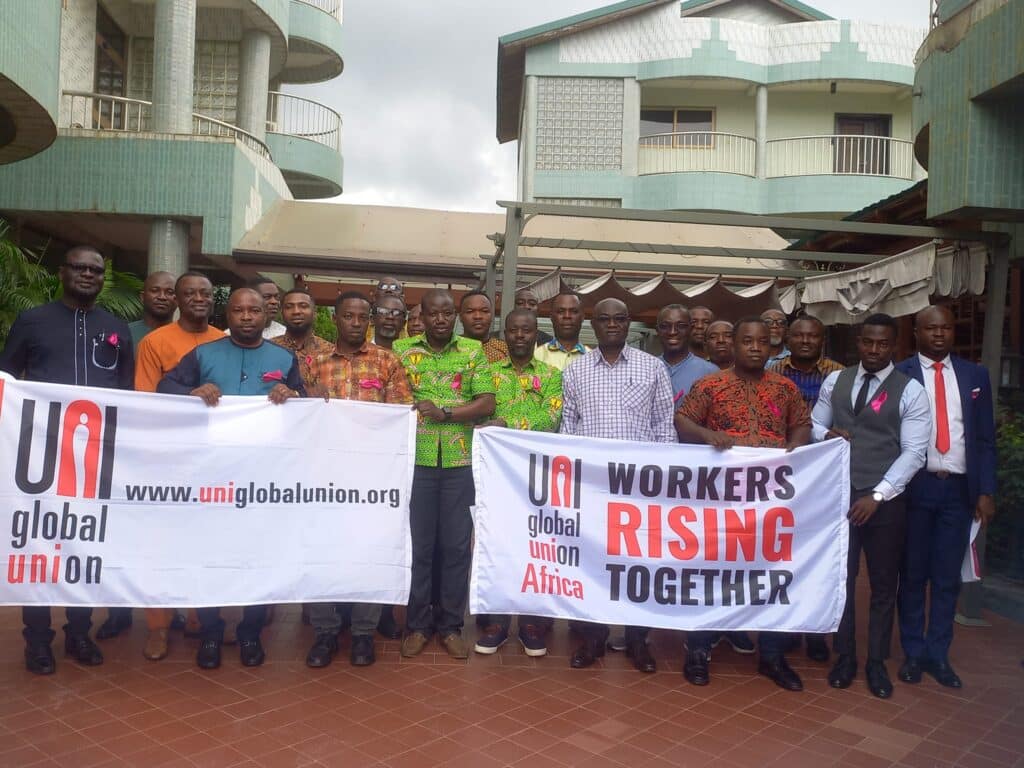
The workshops took an inclusive approach by addressing how men, too, are affected by gendered issues. Topics such as wage disparity, societal pressure, mental, sexual and reproductive health challenges and the stigma around expressing vulnerability were openly discussed, building trust and shared understanding among the participants.
Participants explored the concepts of:
- Patriarchy: Defined as a cultural and social system granting men authority over women in all spheres, including religion, politics, education and the workplace.
- Gender inequality: Highlighted as discrimination or bias based on gender, manifesting in unequal opportunities, dominance, and lack of representation for women.
- Gender equity: While gender equality focuses on equal treatment and opportunities, gender equity accounts for the different needs and circumstances of individuals to achieve fairness. For example, gender equity might involve additional support or measures to address barriers specific to women or marginalized genders to achieve equality.
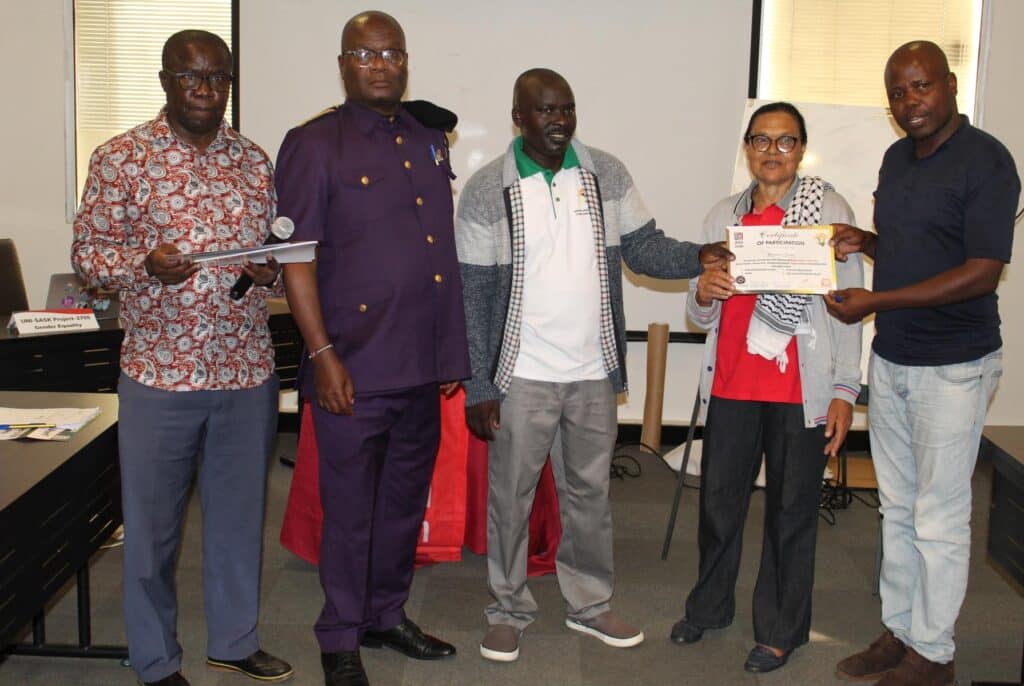
This set the stage for examining how societal norms perpetuate inequality and how trade union activists can play a key role in changing these systems not just in the workplace but in the home as well. “You must become gender activists,” Nyman implored participants.
Discussions highlighted factors that contribute to widespread harassment and violence against women, including cultural beliefs, financial dependence and intimidation. Participants acknowledged how societal norms around dress codes, poverty, and even digital platforms fuel harmful behaviours. They were asked to make a pledge to combat gender-violence and support victims. Some shared personal resolutions, such as intervening in cases of domestic violence.
The workshops referenced UNI Equal Opportunities’ campaign around the three Ms – menstruation, maternity and menopause – and why it is essential that women do not face discrimination through these life experiences and are instead supported in the workplace.
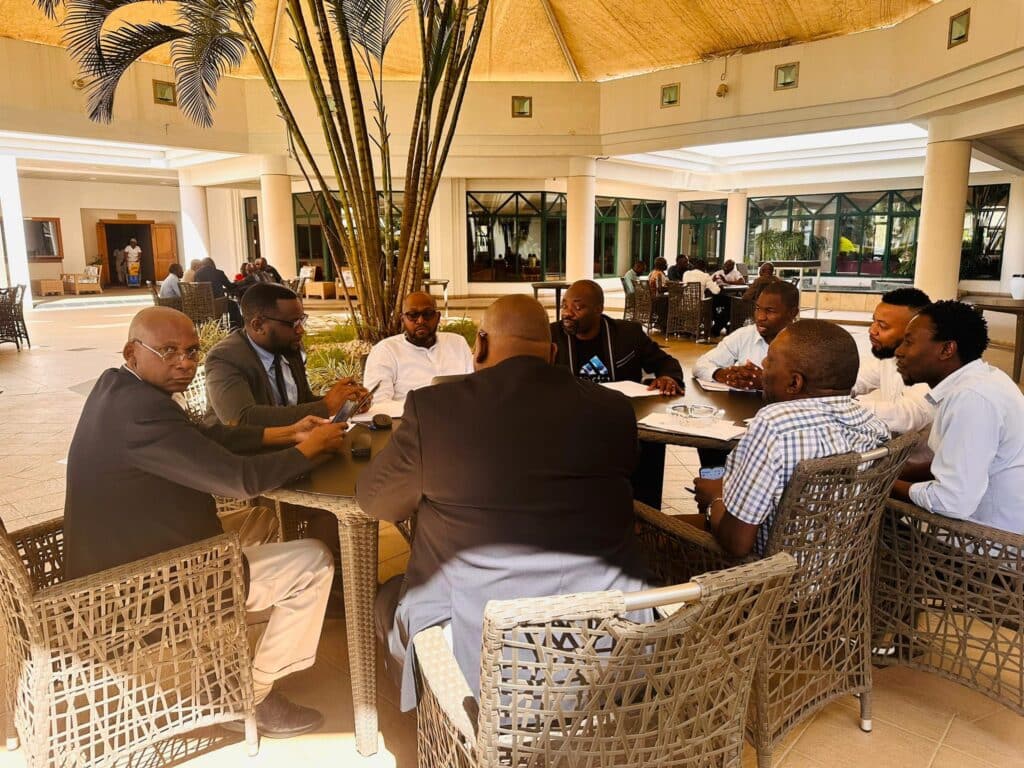
Participants identified behaviours that perpetuate inequality – in the home, at work and in society – and strategies for achieving gender equality in these areas. These include sharing household chores and caring responsibilities equally; ensuring equal opportunities for pay, promotions and leadership; and promoting the education and empowerment of girls.
Real-Life impact: Victor’s* story
One participant, Victor, shared his upbringing in a household that championed gender equality. From an early age, he learned to cook, clean, and share responsibilities with his siblings, regardless of gender. His father inspired equal aspirations, encouraging both sons and daughters to envision themselves as leaders. His story underlined importance of starting gender equality efforts at home by raising children with shared responsibilities and mutual respect.
*Name changed.
In discussing the workshops, Nyman said: “Unions are male dominated, not just in representation, but also in leadership style.” She encouraged the male trade union leaders to be supportive of women in unions and constructive with criticism, and push for parental rights and occupational health and safety in union negotiations.
“Creating spaces where men can confront their own biases and engage with the realities of gender inequity is transformative. These workshops aren’t just about understanding women’s experiences – they’re about reshaping what it means to be an ally and challenging societal constructs that limit us all. True gender equality is achieved when we turn awareness into action and already, we are beginning to see positive changes in our unions on this front,” concluded Nyman.
UNI Africa
